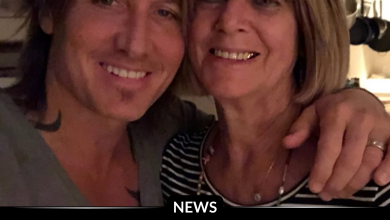“Own Your Masters, No Compromise”: How Prince’s Three-Word Commandment Shaped Beyoncé’s $800 Million Empire
OPINION: This article may contain commentary which reflects the author's opinion.
In the ever-evolving landscape of the music industry, few lessons have proven as transformative—or as prophetic—as three words once spoken by Prince to Beyoncé: “Own your masters.” The advice, often summarized by the late icon as “Own your masters, no compromise,” has become both a rallying cry and a business doctrine for modern artists seeking independence in a system long dominated by record labels.
For Beyoncé, it wasn’t just wise counsel—it became the cornerstone of a financial and creative empire now valued at approximately $800 million.
Prince’s Battle for Artistic Autonomy
To understand the power behind the phrase, one must first look to Prince, the original champion of artist ownership. In the 1990s, he launched one of the most public and principled fights in music history, challenging his label, Warner Bros., for control over his master recordings.
At the height of his fame, Prince made a statement few would dare: he changed his name to an unpronounceable symbol and appeared in public with the word “Slave” written across his face. It was his protest against what he viewed as an exploitative system—one that allowed record labels to own and control the art musicians created.
Prince’s stance was simple yet radical: “If you don’t own your masters, your master owns you.”
His relentless defiance ultimately paid off. In 2014, after decades of tension, Prince regained ownership of his masters from Warner Bros., marking a historic victory not just for himself, but for every artist who would follow.
Beyoncé’s Business Revolution
Among those who took note of Prince’s triumph was Beyoncé Knowles-Carter, whose career was already defined by discipline and vision. But with Prince’s advice ringing in her ears, she began crafting a strategy that would redefine what it meant to be an independent artist in the 21st century.
In 2010, Beyoncé launched Parkwood Entertainment, a production, management, and entertainment company designed to give her total creative control. When her contract allowed, she began releasing her music under Parkwood in partnership with Columbia Records—not as a traditional recording artist, but through a licensing model that allowed her to retain ownership of her masters.
This subtle shift was monumental. Instead of selling her recordings to a label, Beyoncé began leasing them—keeping the rights, the royalties, and the power.
The Payoff: Creative Freedom and Financial Mastery
Owning her masters allowed Beyoncé to make bold artistic moves that redefined the industry. In 2013, she stunned the world with the surprise release of her self-titled visual album Beyoncé, an unannounced drop that sold over 617,000 copies in three days, becoming the fastest-selling album in iTunes history at the time.
Because she controlled her masters, she didn’t need to rely on traditional marketing, executives, or rollout schedules—she answered only to herself.
The benefits extended far beyond album sales. Ownership gave her full control over licensing deals, film and commercial use, and touring rights. Her 2023 RENAISSANCE World Tour, which grossed more than $500 million globally, was a masterclass in brand management and intellectual property synergy—all powered by her ownership of her music.
The Legacy of a Lesson
Prince’s insistence on self-ownership once branded him an industry rebel; today, it’s regarded as a roadmap for longevity and freedom. His message resonated deeply with Beyoncé, who transformed it from a revolutionary act into a standard for artistic empowerment.
By following the three-word commandment—“Own your masters, no compromise”—Beyoncé not only secured her financial independence but also set a new precedent for creative sovereignty in modern music.
Her empire is more than a symbol of success; it’s a living tribute to the artists who dared to demand control over their own art. And in carrying Prince’s torch, Beyoncé proved that true power in music doesn’t come from charts or contracts—it comes from ownership.



